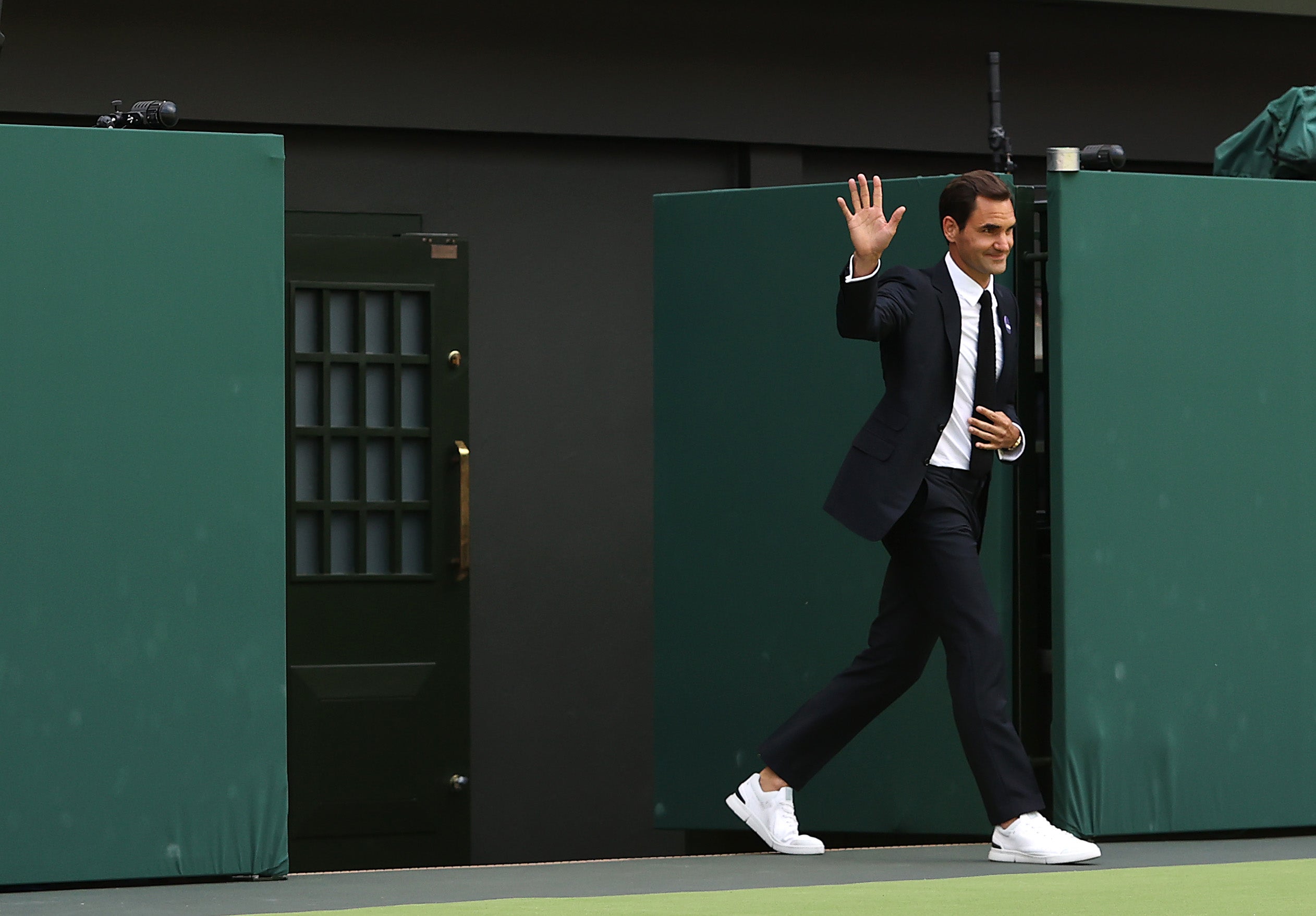Without Federer and Nadal, Wimbledon has Pimm’s but lacks punch
Wimbledon needs us to care, writes Jim White, but who will the hill die for or the Federer followers flock to now the old superstars have faded?


Back in 2017, when I watched Roger Federer take on Marin Cilic in the men’s singles final at Wimbledon, someone pointed out a figure high in the Centre Court stands opposite the press box. Actually, it was hard to miss him.
Dressed in a red T-shirt with the logo “I Love Roger” splurged across the chest, up on his feet yelling in triumph whenever Federer won a point, slouching in his seat despondently whenever Cilic did, here was an individual making sure everyone knew he was living every shot.
This was look-at-me partisanship writ large. And as he bellowed and bawled, engaging in relentless arm-flailing gesticulation, his identity quickly became obvious. It was John Bercow, then the speaker of the House of Commons and a man whose professional life was meant to be the very definition of impartiality. Yet here he was, No 1 Federer fan, so one-sided in his vision that he theatrically sank to his knees in tears of delight when his hero won the match to claim what was to be the last of his record-setting eight Wimbledon titles.
But here’s the thing about Bercow’s ballooning man-crush behaviour: he was by no means alone. Dotted all around Centre Court were not tennis fans but Federer followers – all of them, if not quite espousing Bercow’s tiresome surrender of dignity, utterly committed to the cult of Roger. And in truth, they had a point. To watch him in action was to be in the certain presence of greatness. His grace, his athleticism, his balletic ease: the man was mesmerising.
Federer long ago turned the business of hitting a tennis ball into an art form. But this year he won’t be playing at Wimbledon. He has retired to the commentary box. Rafael Nadal, for so long Federer’s principal nemesis, won’t be on court either. He is undergoing surgery in the increasingly despondent hope of repairing his ageing body. For sure, Andy Murray will be there, though judging by the toll time is taking on his frame, not for long. Of the four titans who dominated the men’s side of the game for close on two decades, only Novak Djokovic is in any position to mount a serious challenge for this year’s title. Though of the quartet, the weirdo Serbian anti-vaxxer was never the one whose personality set the pulses racing on Centre Court.
This, then, it might be thought, is the chance for someone else, someone new, someone fresh. Except that the problem for Wimbledon is that no one has any enthusiasm about who comes next. Or is even sure who they might be. The glorious foursome’s era of total control has meant that an entire generation of players have withered in their shadow. No one comes close to their renown. Well, apart from Nick Kygrios, though he is largely famed for his capacity for angry self-destruction.
And it means that the game, for so long dependent on their celebrity, finds itself suddenly bereft of the kind of star names that bring wider attention, that make tournaments talking points, that make us invest our emotions in their progress. Carlos Alcaraz, Daniil Medvedev, Stefanos Tsitsipas, Casper Ruud – the other four that make up the current world top five with Djokovic – are hardly characters discussed across kitchen tables across the world.
Where once relationships could founder on disagreements over who was better, Nadal or Federer, Djokovic or Murray, no one is going to fall out during arguments about whether Ruud has a superior backhand to Alcaraz. No one, beyond a few in the know, is purring about Medvedev’s serve. As yet, the former speaker of the House of Commons has not been seen embarrassing himself in his enthusiasm for Tsitsipas.
It is the same on the women’s side. Like Federer, the now retired Serena Williams won’t be playing at the All England Club next week. Nor will Emma Raducanu, who is recuperating from yet more surgery.
And Wimbledon needs us to care. It needs us to think of it as appointment viewing. If it is to retain its prominence in the national conversation, it needs those of us working from home to be glued to afternoon television coverage. The fact is, an individual sport like tennis needs us to have our heroes. Sure, if a Brit has a bit of a run it might draw some national attention. But that won’t last long: frankly only the most reckless punter would back Cameron Norrie or Katie Boulter to proceed beyond the second round.
This is what always happens when sporting eras come to an end: things look suddenly bleak and purposeless in comparison. But this seems a more precipitous collapse than any I can recall. Sure, the All England Club, as it always does, will for the next fortnight provide a matchless service for those buying tickets. The strawberries will still be ripe, the Pimm’s as chilled, the hill as packed. But the tennis? Bercow will not be alone in thinking that down on court, things really ain’t what they used to be.



Join our commenting forum
Join thought-provoking conversations, follow other Independent readers and see their replies
Comments